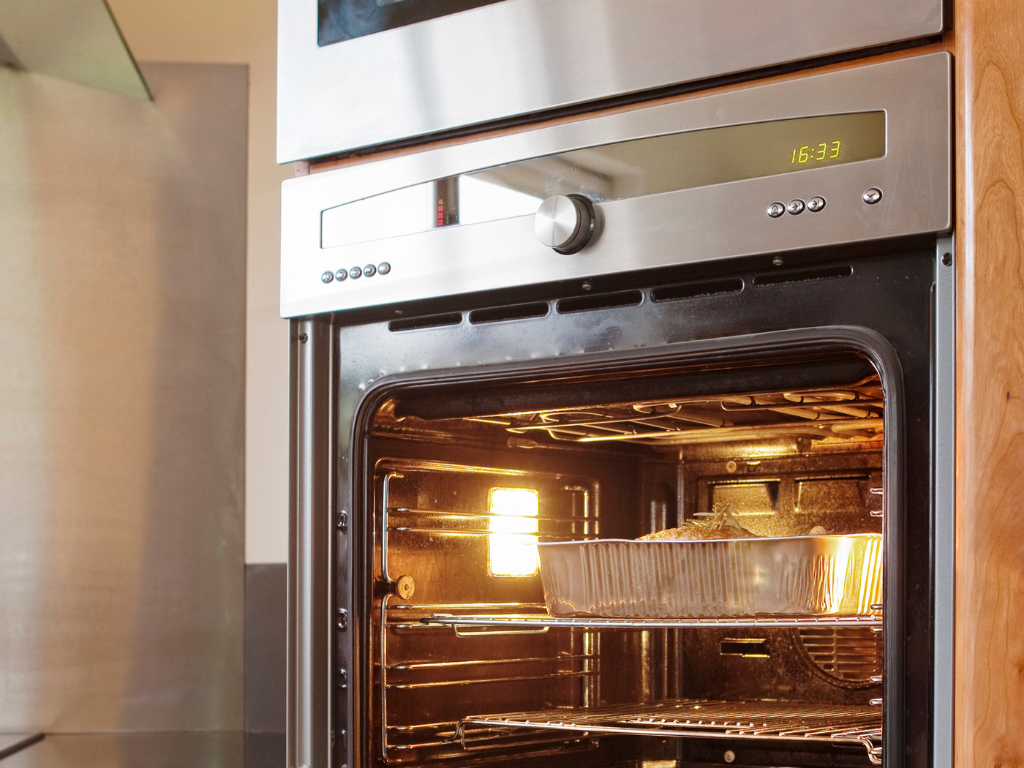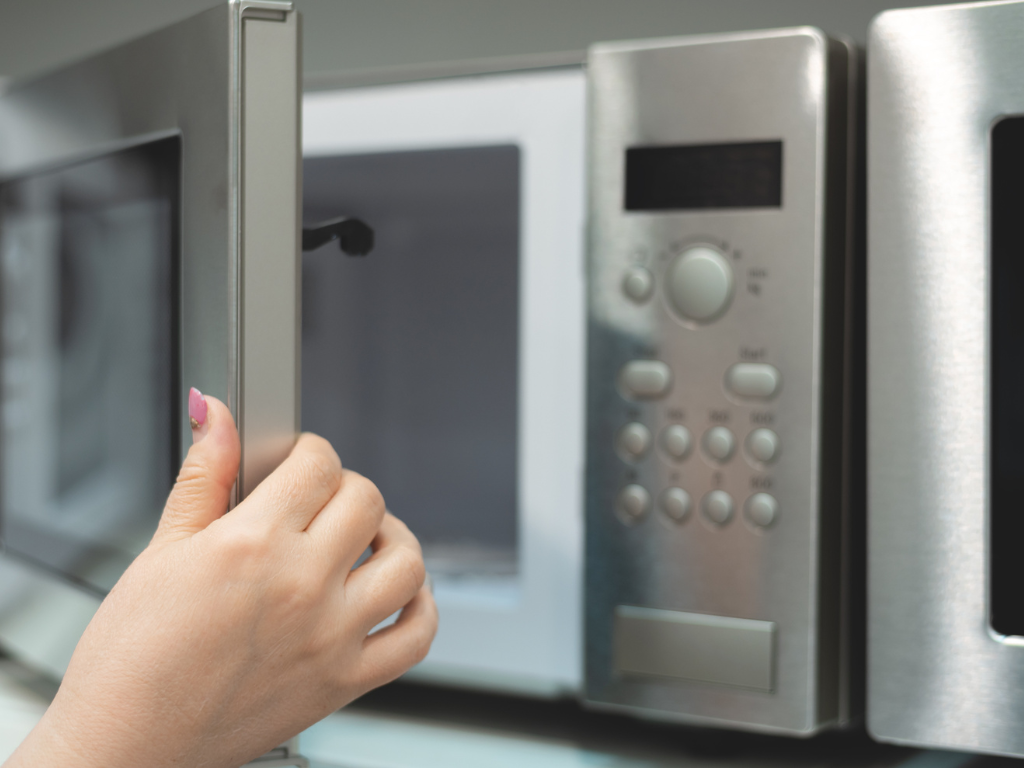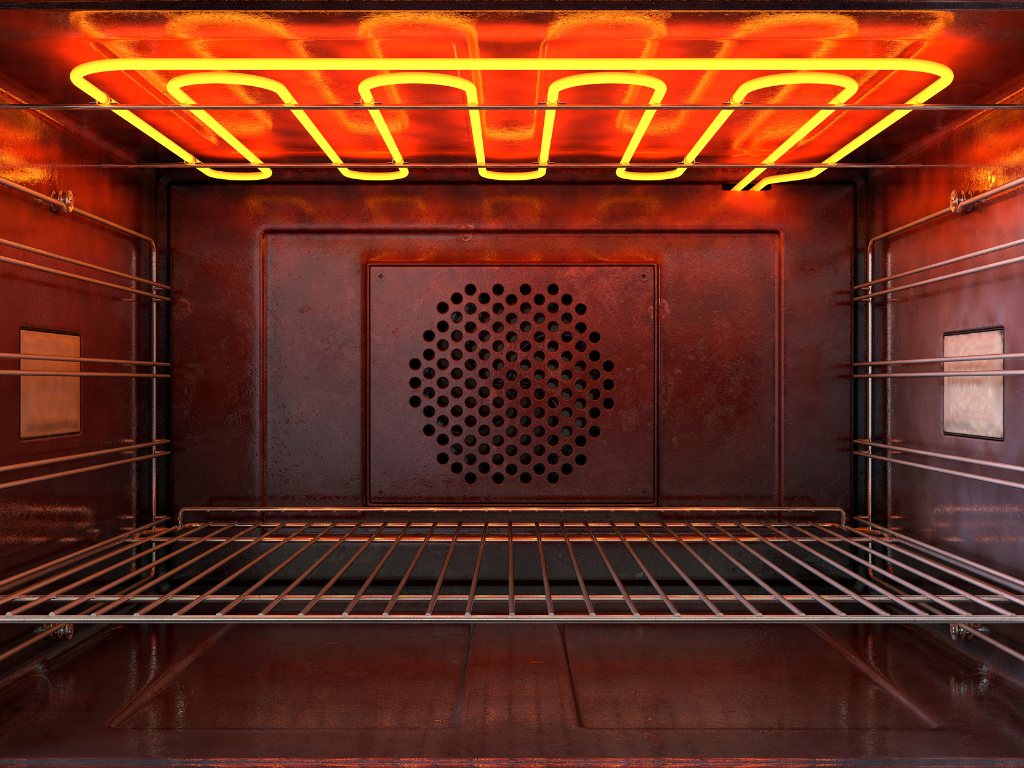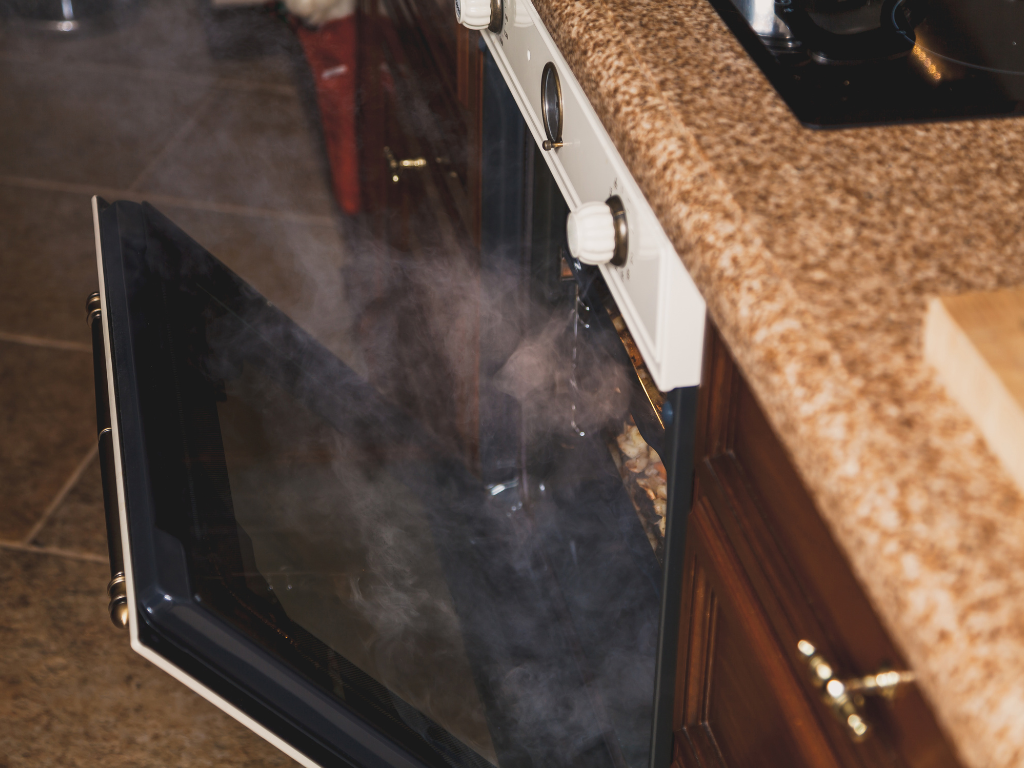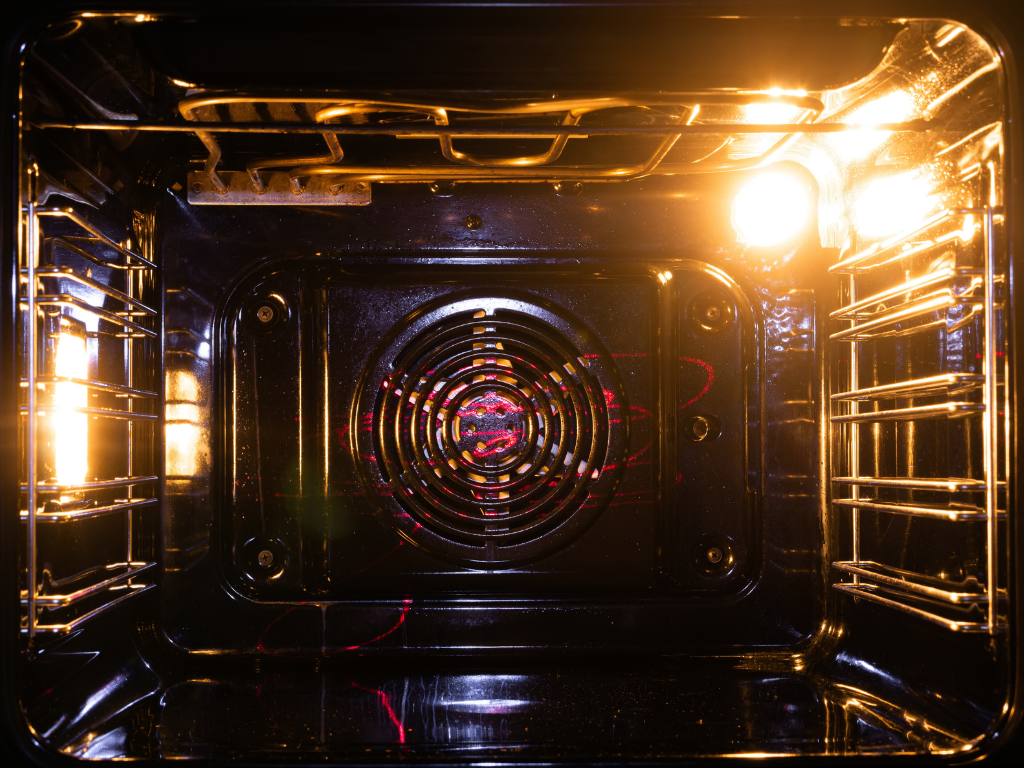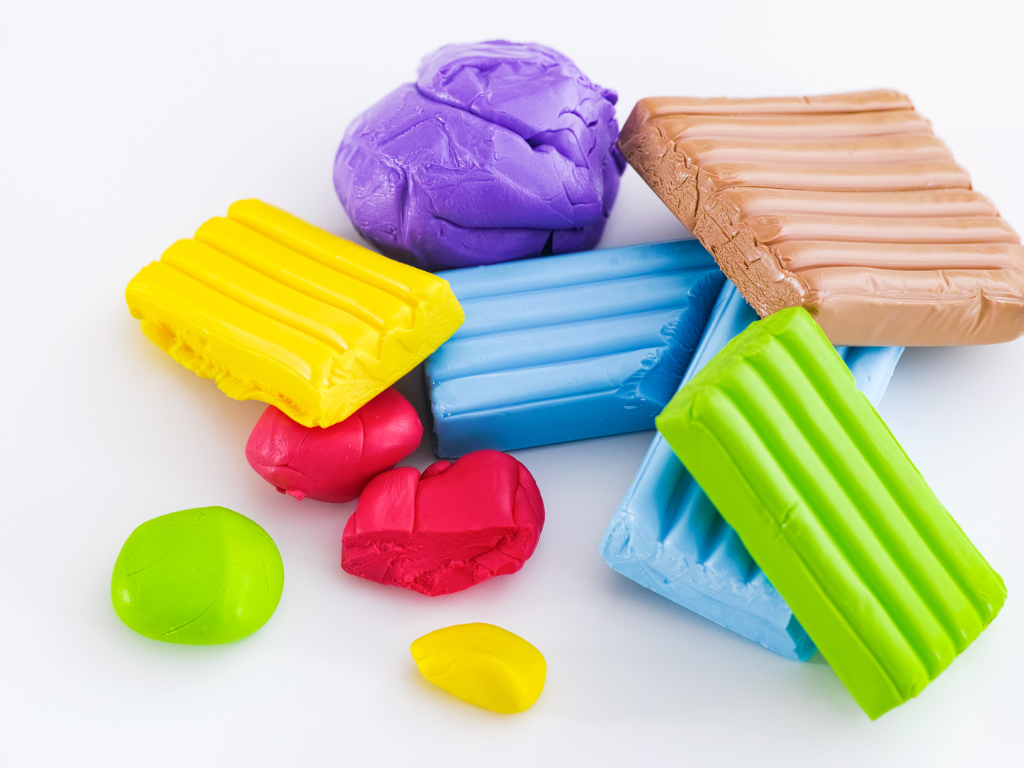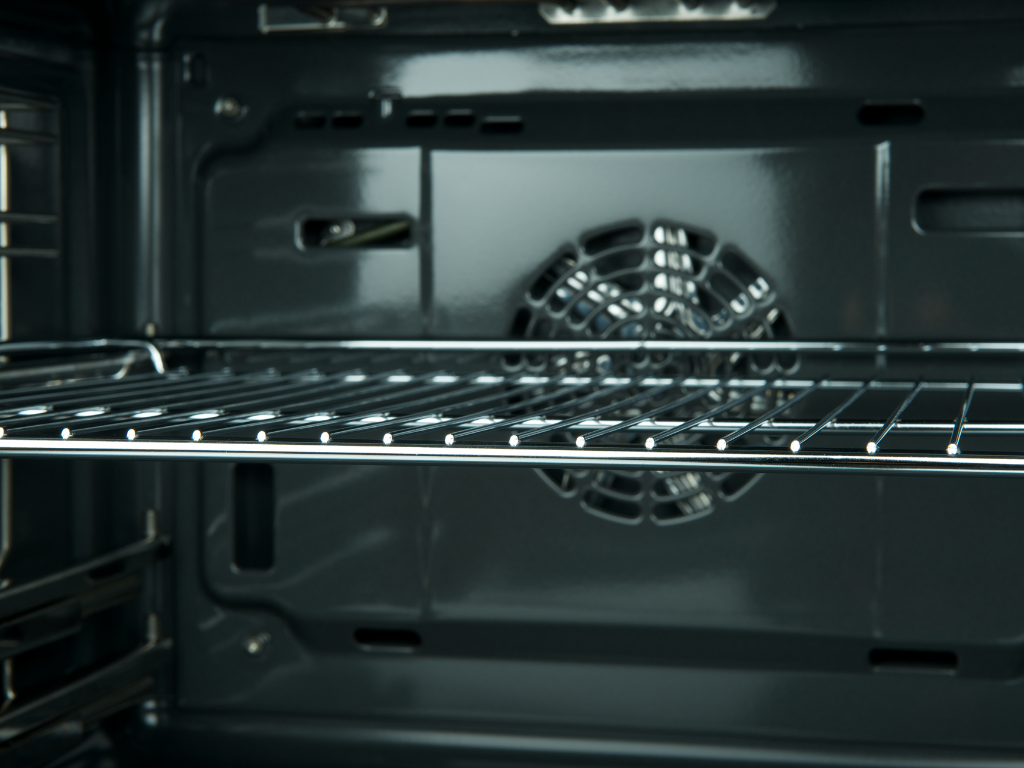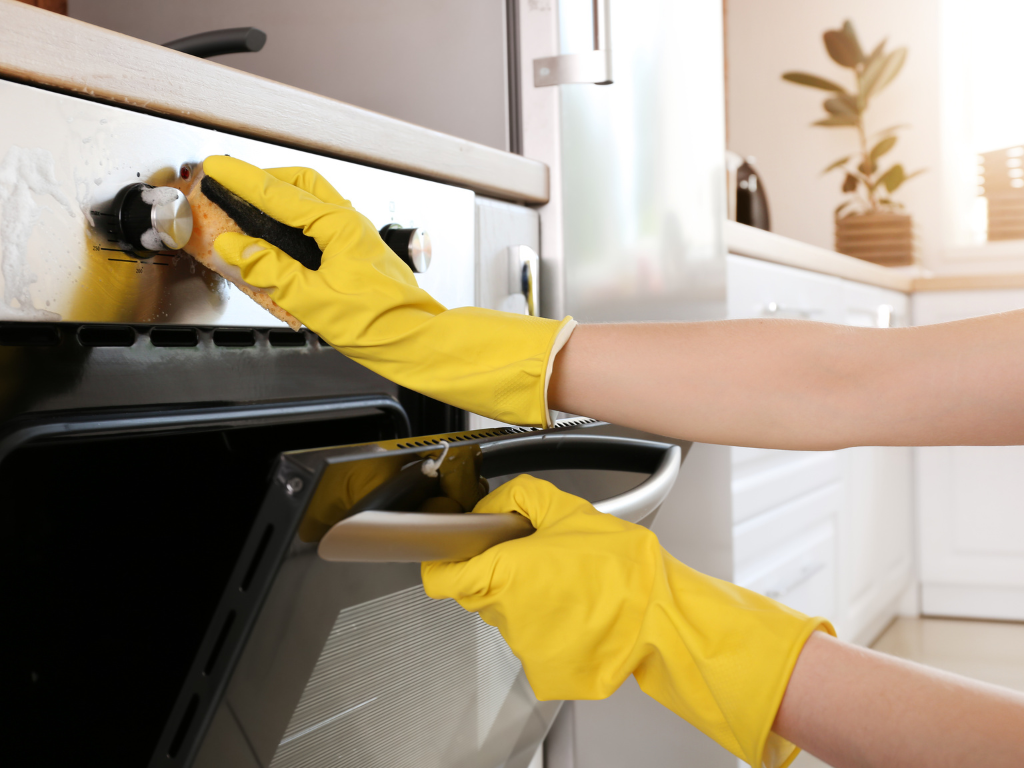Key Takeaways:
- Oven explosions are rare occurrences, but they can cause serious damage to your home and pose a risk to your safety.
- An oven door can explode due to factors such as tempered glass limitations, scratches on the glass, and improper use of the oven.
- To prevent an oven door from exploding, avoid using abrasive materials for cleaning, resting hot pans on the glass door, and slamming the oven door. Opt for sliding oven trays and be gentle with the oven door.
U Worried bout ur oven exploding? U ain’t alone! We all familiar with da fear of leaving an appliance on whilst away. Wanna know if ur oven gonna blow up? Read this & find out how to prevent it!
Introduction
In today’s modern times, ovens are a standard household appliance. However, one question commonly asked is whether an oven can explode. The answer is yes, an oven can explode, especially if the tempered glass on the door is damaged or there are scratches on it. Temperature changes can also compromise the glass integrity, as can using hard bristle brushes or stainless scrubs to clean it. Slamming the oven door or exposing it to a chain shock reaction can also lead to an explosion, as can using a wet towel to clean the vent, blocking the ventilation. As a true fact, according to the National Fire Protection Association, electrical failures or malfunctions are responsible for a significant portion of oven fires.
The fascination of cooking in an oven
Cooking in an oven is a fascinating experience. The perfect temperature, the aroma of sizzling food and the anticipation of waiting for it to be ready is something that keeps us hooked. However, there are various things that one must keep in mind to avoid any unforeseen accidents.
It is essential to maintain the cleanliness of the oven and ensure that no particles or debris gets into the electrical wires while cooking. Slamming the oven door or sliding a tray inside can also cause damage – including oven explosion – so it is advisable to handle these actions carefully.
Apart from this, calibrating the oven and staying updated with its cycles can help prevent any mishaps. While self-cleaning an oven can help eliminate build-up, deep cleaning it from time-to-time can help remove baked-on carbon too.
To stay safe while cooking, one must also educate themselves on common doubts such as handling new ovens’ warming settings, turning off self-cleaning mode safely, placing paper plates in the oven, handling sparking elements and removing baked dishes from hot ovens.
One should also take precautions before leaving their homes without turning off their ovens or even reheating Papa John’s pizza right away. Furthermore, it is essential to keep in mind which material will be safe for baking within your oven – such as not putting plastic or wooden-cutting boards inside it.
By following these simple suggestions one can enjoy cooking in their ovens without worrying about unexpected incidents.
The danger of oven explosions
Ovens are an essential part of the kitchen, but they pose risks that must be adequately addressed. Not maintaining them well can lead to disasters such as dangerous oven explosions. These incidents are caused by many factors that may include slamming oven doors, sliding oven trays, and a dirty vent or hot pan left in the oven. It’s crucial to understand how ovens work, what their cycles mean, and how to cancel the self-cleaning feature safely.
To prevent oven explosions from occurring, you should regularly maintain your oven. This includes cleaning baked-on carbon from the interior and removing aluminum foil from the bottom. Calibrating your oven is also essential as it ensures proper cooking temperatures for your food. Additionally, it’s vital to know how to turn off cooling fans properly and how to remove a pizza safely from the oven.
A real-life experience involved an individual putting oil in their oven while cooking chicken at 475 degrees Fahrenheit. The result was a massive explosion that rocked their house and destroyed their kitchen walls. Fortunately, they were not injured physically; however, caution must always be exercised while using any hazardous equipment like ovens.
Can an Oven Explode and Cause a House Fire?
An oven may explode due to various reasons, such as a malfunctioning part or overheating, which can ignite a fire causing property damage or injury. It is essential to clean vents and follow manufacturer’s instructions, including canceling self-cleaning cycles. Although a new oven may have a strange scent, it is safe to cook food in it. Avoid putting cold glass or paper plates in the oven and use caution when removing hot items.
To remove aluminum foil, use a scraper or a product specifically designed for this purpose. In case of an issue, reset the oven or seek professional help. It is also possible to harden polymer clay and cure powder coatings without an oven. While some materials are oven safe, others, such as plastic or wood, may not be suitable for the oven.
Rare occurrences of oven explosions
It is highly uncommon for ovens to explode and cause house fires. While a malfunctioning gas line or electrical wiring may potentially ignite fumes, modern ovens have safety measures in place to prevent explosions. However, it’s important to be aware of the potential risks and read the manufacturer’s instructions carefully. In case of any unusual smells or sounds coming from the oven, turn it off immediately and contact a professional for an inspection.
If you are experiencing any issues with your oven, it is important to learn how to cancel self cleaning oven, calibrate frigidaire oven and turn off sabbath mode on oven as per the manufacturer’s instructions. Additionally, knowing how to remove baked-on carbon from the oven and get aluminum foil off the bottom of an oven can help prevent smoke and fire damage.
When using an oven, always follow recommended guidelines such as not putting paper plates in the oven or oil in the oven. Avoid placing cold glass dishes directly in hot ovens as this can cause them to shatter. Turn off your electric stove if it shows any signs of malfunction such as turning itself on or blowing out hot air.
By being vigilant and taking proper precautions while using your oven, you can avoid potential hazards. Do not leave your house unattended while the self-cleaning feature is activated or baking pizza directly on an open rack as this can pose a fire hazard. Contact a professional if you notice anything unusual or need assistance in resolving any issues with your appliance promptly.
Oven door explosions and their effects
Oven explosions and their harmful consequences are a serious concern for households. The sudden explosion of the oven door can send shrapnel flying, causing cuts, bruises, or even necessary hospitalization. This can be caused by various factors such as internal oven damages or overheating.
These explosions can result in severe burns, hearing damage from the explosion’s loud noise, or head injuries from falling objects. Oven mishaps like these can have long-term repercussions for families and must be avoided at all costs to ensure safety when cooking and baking.
It is crucial to handle the oven with care to prevent any potential risk of accidents. Regularly check for any internal damage to the oven, avoid leaving flammable materials inside the oven, and do not use a higher wattage bulb than what is recommended by the manufacturer.
Pro Tip: Familiarize oneself with one’s brand’s specific instructions regarding proper usage of one’s oven to reduce any chance of mishandling.
Why Does an Oven Door Explode?
The explosion of an oven door is usually caused by temperature changes or a buildup of pressure. When there’s an abrupt shift in temperature, particularly when cooking at high temperatures or when moving food in or out of the oven, the glass door may explode. Additionally, if the seal around the door is damaged or the door isn’t closed correctly, it may create a buildup of pressure that can also cause the door to shatter. It’s important to ensure that the oven is properly maintained and that the door is in good condition to prevent any potential accidents.
If you’re ever in a situation where an oven door has exploded, it’s important to take precautions to ensure your safety. First, turn off the oven and allow it to cool. Then, carefully remove any broken glass and dispose of it properly. If there’s any damage to the oven, be sure to have it inspected and repaired before using it again.
It’s worth noting that explosions aren’t the only potential hazards associated with ovens. Some other questions to consider include:
- What does the oven cycle mean?
- How to remove baked-on carbon from the oven?
- How to cancel the self-cleaning process?
Additionally, concerns related to oven safety may include whether it’s safe to eat food cooked in a new oven, the warm setting on an oven, and how to turn off the self-cleaning function.
Tempered glass and its limitations
Tempered Glass: Limitations and Weaknesses
Tempered glass is designed to have superior strength against impact and thermal stresses. However, it is not indestructible. When exposed to extreme temperatures or physical force outside its design limitations, tempered glass may shatter into small pieces. The limitations of tempered glass can range from manufacturing defects, installation errors to excessive heating or cooling cycles in appliances, such as ovens.
The safety of tempered glass oven doors is contingent upon even heat distribution during oven operation. Uneven heating due to insufficient insulation, cooking at extremely high temperatures for an extended period or abrupt changes of temperature can cause the glass to shatter unexpectedly. There are several factors that may contribute to the explosion of a tempered glass oven door.
It’s essential to prevent damage by regularly inspecting ovens before each use and ensuring proper cleaning methods are utilized. Avoid slamming objects against oven doors and damaging door edges with sharp utensils while cooking or cleaning. Additionally, do not leave heavy objects on top of the oven door when open or closed as this could create too much weight on one focal point.
To prevent explosions caused by sudden changes in temperature avoid exposing the oven door directly to heat sources such as stovetop burners or being hit by moving air masses like drafts coming through an open window.
Avoid putting cold dishes direct from the fridge into the preheated oven; instead, let it rest until it comes down to kitchen temperature and place it gently inside the hot oven. Regular maintenance check-ups will ensure your appliance runs smoothly without posing a threat to you and your family’s safety.
Scratches and their impact on the glass
When it comes to oven glass, even the slightest scratch can have an impact. Scratches on the glass can weaken its structural integrity and, if left unattended, could lead to a shattered oven door. Additionally, scratches on the glass can cause problems with insulation, negatively affecting the oven’s temperature regulation ability. It is essential to closely monitor any scratch or crack on the oven glass and have them addressed immediately.
If scratches are present on your oven glass, there are several steps you can take to prevent further damage:
- Avoid using abrasive cleaners or scrubbers when cleaning the oven glass.
- Similarly, do not use metal utensils when cooking in the oven since they could scratch the glass surface.
- Regular cleaning and hygiene maintenance can also help keep your glass in optimal condition.
In some instances of deep scratches, it may be necessary to replace part or all of your oven’s glass components. If concerns about cracks arise, call an expert manufacturer for inspection before you simply buy new parts.
Ultimately it is up to you as a user of ovens to take care of it while necessary & keeping your eyes open about damage that will help maintain integrity and safety standards over time. Therefore, do not ignore damages done and ensure that all stays intact by regular checks.
How Taking the Wrong Steps is Harming Your Oven
Taking care of your oven is crucial to ensure its longevity and prevent safety hazards. Negligence and wrong steps can harm your oven and cause potential damages. Here are some tips to avoid harming your oven:
- Always follow the manufacturer’s instructions and never use the oven for purposes other than cooking.
- Use appropriate cookware and avoid using paper plates or plastic in the oven.
- Regularly clean your oven and remove any baked-on carbon deposits.
- Ensure that the oven’s heating element and cooling fan are in good condition.
It’s also important to note that leaving an oven on unattended or running it for extended periods can be hazardous. Always monitor the oven while in use and turn it off when not in use. By following these steps, you can ensure the safe and proper functioning of your oven.
Using abrasive materials for cleaning
Abrasive Cleaning Materials for Your Oven
Abrasive materials are unsuitable for cleaning your oven. These cleaning substances can cause severe damage and affect the functionality of oven components, leading to potential hazards.
Here are the reasons why you should avoid using abrasive materials to clean your oven:
- Abrasives may remove protective coating: Using harsh scrubbers or sharp objects can strip off the protective surfaces which will make the interior vulnerable towards damages.
- Scratching up the interior of the oven: Scraping away at stubborn grease with metal utensils or abrasive pads can cause unwanted scratches, making it challenging to keep them clean with regular wipes.
- Damaging heating elements: The grime and grease stuck behind metal plates can easily pave a path for unwanted obstruction, leading to build-up that could seep into and damage heating elements.
- Potential safety risk: Over-enthusiastic use of abrasive cleaners could harm your skin, eyes and respiratory system due to exposure towards chemical fumes. It would be best if you used safer alternatives like baking soda and mild soap solutions instead.
It’s advisable to take extra care while avoiding harsh products, as they don’t always guarantee promising results while damaging your appliances. Hence, stick with gentle yet effective techniques that help you in prolonging the longevity of your oven.
Pro Tip: Instead of using abrasives for cleaning stubborn dirt or grime stains, try using natural ingredient-based solutions such as baking soda/water mixtures or vinegar/water solutions.
Resting hot pans on the glass door
Placing hot pans on the oven door may seem like a convenient idea, but it can be dangerous for both you and your appliance. The glass door is not designed to support heavy loads or extreme temperatures. Not only can it shatter, but it can also cause damage to the sealants and hinges over time. As a result, heat may escape, leading to poor performance and energy inefficiency. To prevent any damages or accidents caused by hot pans, always use proper cookware and ensure that they are placed on sturdy surfaces.
When left unattended, ovens can become hazardous if operated incorrectly. Always follow manufacturer guidelines for cleaning cycles and oven usage. Never use metal utensils or harsh chemicals to clean the oven interior as they could damage the heating elements.
Pro Tip: While the temptation to use your oven door as a makeshift countertop may be strong at times, it is essential to resist this urge to avoid costly repairs down the line.
Slamming the oven door
When shutting your oven door:
- Push the oven door gently to avoid damaging the hinges. Slamming it may damage the seal and cause inaccurate temperature readings.
- Ensure that the door completely closes before turning on your oven. This helps prevent heat from escaping and causing inconsistent results.
- Avoid opening your oven frequently during cooking, which can cause uneven baking temperatures or slow down cooking times.
It is important to note that slamming an oven door can damage its hinges and seal, resulting in a less efficient appliance. Thus, it is recommended to push the door gently when shutting it.
How Do You Prevent an Oven Door from Exploding?
Preventing an oven door from exploding is crucial to ensure the safety of an individual and their surroundings. Here are four steps to prevent this from happening:
- Regularly clean the oven door and window using non-abrasive materials to remove any accumulated debris that could potentially cause damage.
- Ensure the oven door is properly installed and aligned, making sure the hinges are in good condition.
- Avoid slamming the oven door shut and check for any loose handles or knobs.
- Stay alert for any unusual noises or smells and call a professional if any abnormality is detected.
It is important to note that oven explosions can occur due to a variety of reasons, such as faulty wiring, overheating, or manufacturing defects. Therefore, it is recommended to get regular maintenance and inspections performed to prevent any mishaps.
A true fact: According to a report by ABC News, oven explosions can cause serious injuries and damages, and it is essential to take preventive measures to avoid any accidents.
Avoiding risky practices
Minimizing the risk
To avoid dangerous situations when using your oven, it is essential to take necessary precautions. Make sure that your oven is in good working condition, and get it serviced regularly. Additionally, always use oven mitts when handling hot dishes and avoid wearing loose articles of clothing that could catch fire.
Further safety measures may include keeping flammable materials away from the oven, such as paper towels and plastic bags. It is also not recommended to store cookware inside the oven when not in use. Follow all manufacturer directions regarding preheating, cooking times, and temperatures.
In addition to these safety measures, always make sure you understand what each feature on your particular oven does. For instance, you should know how to operate self-cleaning cycles safely or what “warm” setting means, among other things.
Be a responsible user
It’s important to remember that following proper oven usage can help reduce the risk of accidents. You don’t want an appliance with malfunctioning elements or malfunctioning controls due to neglectful usage or maintenance practices.
If you opt for self-cleaning features or ovens with smart features like sabbath modes for religious observances or special cooking modes, be sure to follow all safety instructions described in the manual carefully.
Don’t let risky behavior spoil your experience when using an oven. By following sound practices at home, you can safely bake perfect treats without any potentially deadly problems down the line.
Opting for sliding oven trays
Cooking can be an enjoyable yet challenging task, especially if you are using a traditional oven that is difficult to maneuver. Fortunately, sliding oven trays provide a solution for this problem. These user-friendly trays allow you to cook your favorite dishes with ease while enjoying maximum efficiency.
Here’s a 3-step guide on how to opt for sliding oven trays:
- Determine the size of your oven and the type of tray that fits.
- Look at the material of the sliding tray as well as its weight capacity.
- Check its compatibility with your oven’s specific model.
A unique detail about sliding oven trays is their flexibility in use; they’re versatile enough to be used for baking, broiling, and roasting purposes without any difficulty.
What happens when an oven explodes? A true story of an exploding oven reported by customers warns against careless use of the appliance. Neglecting important instructions like not leaving the door open when preheating can lead to drastic consequences such as explosions or even fire outbreaks. It is essential to handle cooking appliances with utmost care and attention for both personal safety and equipment longevity.
Being gentle with the oven door
It’s important to handle your oven door with care to avoid damaging it or risking injury.
Gently opening and closing the door can prevent it from wearing out quickly or warping over time. In addition, slamming the oven door can lead to a dangerous buildup of pressure within the oven itself.
If you’re unsure about how to use your oven correctly, consult the user manual that came with it or look up instructions online. This can help you avoid accidentally causing damage or creating safety issues. Additionally, researching topics like what does oven cycle mean or how to remove baked-on carbon from your oven can give you a better understanding of how best to maintain and care for your appliance.
One incident involving an exploding oven occurred in 2017 when a family in the UK heard a loud bang and their kitchen filled with smoke after using their dual-fuel range cooker. The explosion was caused by a faulty gas valve on the hob section of the cooker, which allowed gas to escape into the oven cavity until it ignited. Fortunately, no one was injured in this incident.
It’s crucial to be aware of potential risks when using an appliance like a dual-fuel oven and take steps to prevent accidents before they occur. Following proper usage guidelines and performing regular maintenance can go a long way in ensuring that your appliance remains safe and functional for years to come.
Frequently Asked Questions
For those seeking answers to common queries regarding domestic ovens, we have provided comprehensive information in this article. It covers a wide range of topics, from safety concerns to cooking techniques.
Some frequently asked questions about ovens are – Can an oven explode? Is it safe to eat food cooked in a new oven? How to remove baked-on carbon from the oven? Can you put paper plates in the oven? These matters are addressed here in detail.
- Yes, ovens can explode due to various reasons, such as gas leaks, malfunctioning of heating elements or thermostats, or build-up of pressure inside the oven. It is crucial to take necessary precautions and follow manufacturer’s guidelines to avoid accidents.
- Generally, it is safe to consume food cooked in a new oven. However, it is advisable to run a self-cleaning cycle before using it for the first time and ensure that the appliance is installed correctly.
- To remove baked-on carbon from the oven, use oven cleaners or mix baking soda and vinegar. Scrub off the stains with a non-abrasive sponge or a soft-bristle brush. Rinse with water and wipe dry.
- It is not recommended to put paper plates in the oven as they may catch fire or release harmful chemicals. Use oven-safe cookware or parchment paper instead.
Moreover, it is important to calibrate the oven regularly to ensure accurate temperature readings. You should also switch off the self-cleaning feature before cancelling it and wait for the oven to cool down before trying to remove the residue. Keep a close eye on the oven while cooking to prevent accidents.
Stay informed and safe by learning about the proper use and maintenance of your oven. Don’t miss out on the benefits of having a well-functioning appliance. Take care of your oven and enjoy hassle-free cooking!
Do ovens ever explode?
There have been instances of ovens exploding due to various reasons, including misuse or failure of heating elements. It is crucial to use the oven according to the manufacturer’s guidelines and avoid overloading it with items that can create excessive heat. Always make sure to clean it regularly and remove any debris that accumulates inside. If there are signs of a faulty heating element or wiring, consider getting it repaired professionally.
It is important to understand how ovens work and take necessary precautions to avoid accidents. For instance, leaving an empty dish in the microwave oven or placing cold glass cookware in a preheated oven can lead to an explosion. Knowing how to remove baked-on carbon from the oven, how to cancel self-cleaning mode, warm settings on the oven, turning off self-cleaning option matters too.
Always remember not to leave your oven unattended and refrain from using utensils inside the oven that are not recommended for high-temperature use or are prone to melting – also, leaving the house while the oven is on self-cleaning mode is a risky move. It takes only seconds for fires to start if grease catches fire in your range hood – that’s a fact published by The National Fire Protection Association in 2020.
Overall, ovens are safe when used correctly and maintained appropriately. Ensure you educate yourself about proper practices related to the use of ovens and follow them without fail.
Can an electric oven explode?
Electric ovens are manufactured to meet the safety standards set by regulatory bodies. However, mishandling or poor maintenance can lead to dangerous situations such as oven explosions. When an electric oven explodes, it can cause significant damage to property and may even cause fatal injuries.
A potential cause of an electric oven exploding is the buildup of gas inside the oven. Gas can accumulate when food scraps, grease, or oils inside the oven are not cleaned regularly. This buildup can ignite, causing a combustion reaction that could lead to explosion.
If your oven has a faulty thermostat or damaged heating element, this could also lead to an explosion. A damaged thermostat may overheat the oven or fail to regulate temperature levels effectively, leading to an explosion.
It is critical to ensure that you regularly clean your oven and have it serviced periodically by a qualified technician. Avoid leaving food items unattended in the oven for long periods and ensure your children do not play near or inside the appliance.
How to prevent an oven from exploding?
Preventing oven explosions is crucial to avoid any harm or damage. Here are some safety measures to use self-cleaning ovens and avoid such hazardous incidents.
- Turn off the Oven: Always turn off the oven after cooking your food. Leaving it on can lead to overheating and possibly lead to an explosion.
- Clean Your Oven Regularly: Avoiding long periods between cleaning and disposing of any toxic gases from burnt-on carbon is also crucial.
- Read the Manual Carefully: Understanding your oven functions, its safety features, do’s and don’ts plays a significant role in handling the appliance properly.
- Seek Professional Help: If you hear or notice any unusual sound or malfunction during its operation, seek professional help to avoid potential hazards.
It’s essential to follow these steps carefully; not taking them seriously can cause harm or damage that could have been avoided with proper care and attention. Moreover, always preheat your oven, remove baked-on carbon before using the self-cleaning function, avoid placing cold dishes in hot ovens, keep away from oils on surfaces in an oven, remove aluminum foil (if any) from under the element prior to self-cleaning functions.
A friend was excited about baking but forgot her pizza when she put it in the oven! The result was devastating – a burnt mess with smoke filling up her house for hours due to overheating inside the appliance. Since then, she learned never to leave her food unattended while being cooked or warmed in an oven – a costly lesson but life-saving!
Can the oven catch on fire?
Self-cleaning ovens use high temperatures to burn off any leftover food debris or spills, but can the oven catch on fire during this process? While it is rare for a self-cleaning oven to catch on fire, it is possible if safety measures are not taken. It is important to follow the manufacturer’s instructions carefully and never leave the oven unattended during the self-cleaning process.
To prevent a potential fire, ensure that all racks and accessories are removed from the oven before starting the self-cleaning feature. Any baked-on carbon should be removed beforehand as well, as it can ignite at high temperatures. Additionally, choose a time when you will be home and awake during the self-cleaning cycle in case of any issues.
It is also important to keep your oven properly maintained with routine cleaning and inspections. If you notice any sparks from the oven element or if your oven light turns off and on by itself, these may be signs of an electrical issue that should be addressed immediately.
Pro Tip: When using aluminum foil in your oven, make sure it does not come into contact with the heating element to avoid potential fires.
Conclusion
When it comes to the question of whether an oven can explode, the answer is yes, but it is incredibly rare and typically only occurs with gas ovens. This usually happens due to a gas leak and can lead to a build-up of ignitable gas. However, modern ovens have various safety features, like automatic shut-off valves, to prevent such incidents. It is always important to follow manufacturer’s instructions for safe use and maintenance of ovens. It is also advised to check the oven regularly for issues such as sparking oven elements, strange smells, or abnormal sounds to prevent any potential hazards. Remember to always exercise caution when handling an oven and consider seeking professional assistance for any issues.
Five Facts About Can An Oven Explode:
- ✅ Yes, an oven can explode if there is a gas leak or buildup of combustible materials. (Source: The Spruce)
- ✅ Electric ovens can also explode due to faulty wiring or components. (Source: Hunker)
- ✅ Some experts recommend regularly cleaning and inspecting your oven to prevent potential explosions. (Source: Consumer Reports)
- ✅ In rare cases, cheap or low-quality ovens may pose a higher risk of explosions. (Source: The Kitchn)
- ✅ If you suspect a gas leak or other issue with your oven, immediately turn off the gas supply and call a professional for assistance. (Source: HomeServe USA)
FAQs about Can An Oven Explode
Can an oven explode?
Yes, an oven can explode if it is not properly maintained or if there is a gas leak. It is important to regularly inspect your oven and call a professional if you notice any unusual smells or sounds.
How to remove baked on carbon from oven?
You can remove baked on carbon from your oven by creating a paste with baking soda and water and scrubbing the affected areas with a non-abrasive sponge. You can also use specialized oven cleaners, but make sure to follow the instructions carefully.
How to cancel self cleaning oven?
To cancel the self-cleaning cycle on your oven, you can usually press and hold the “cancel” or “stop” button until the cycle stops. Refer to your oven’s manual for specific instructions.
Can you put a cold glass dish in the oven?
No, you should not put a cold glass dish in the oven as it can shatter due to the sudden temperature change. Let the dish come to room temperature before placing it in the oven.
How to take pizza out of oven?
You can use a pizza peel or a large spatula to carefully remove the pizza from the oven. Make sure to use oven mitts or potholders to protect your hands from the heat.
How to get aluminum foil off bottom of oven?
You can use a plastic scraper or spatula to gently scrape the aluminum foil off the bottom of the oven. For any remaining residue, mix equal parts water and vinegar and use a sponge or cloth to wipe the area clean.
